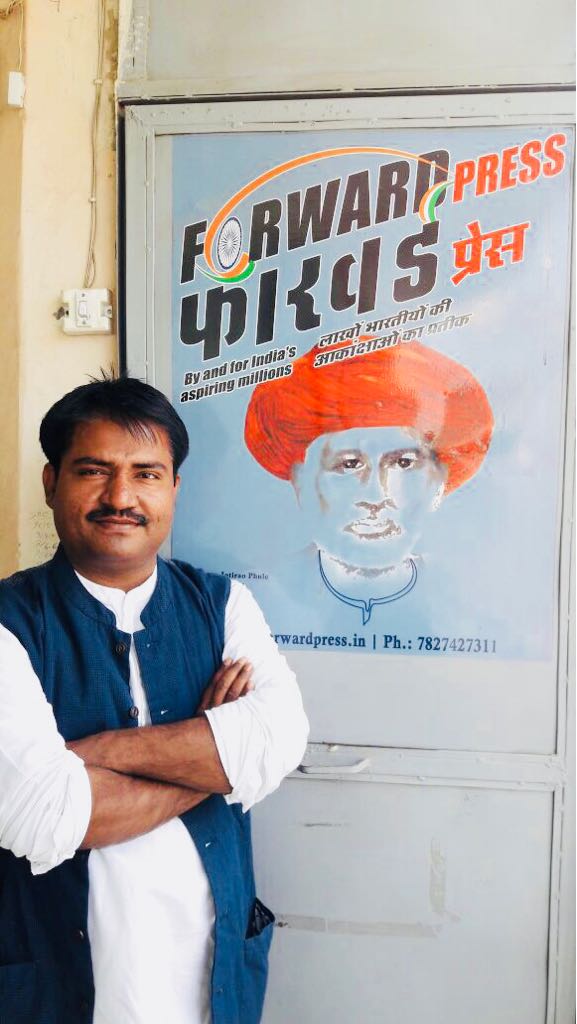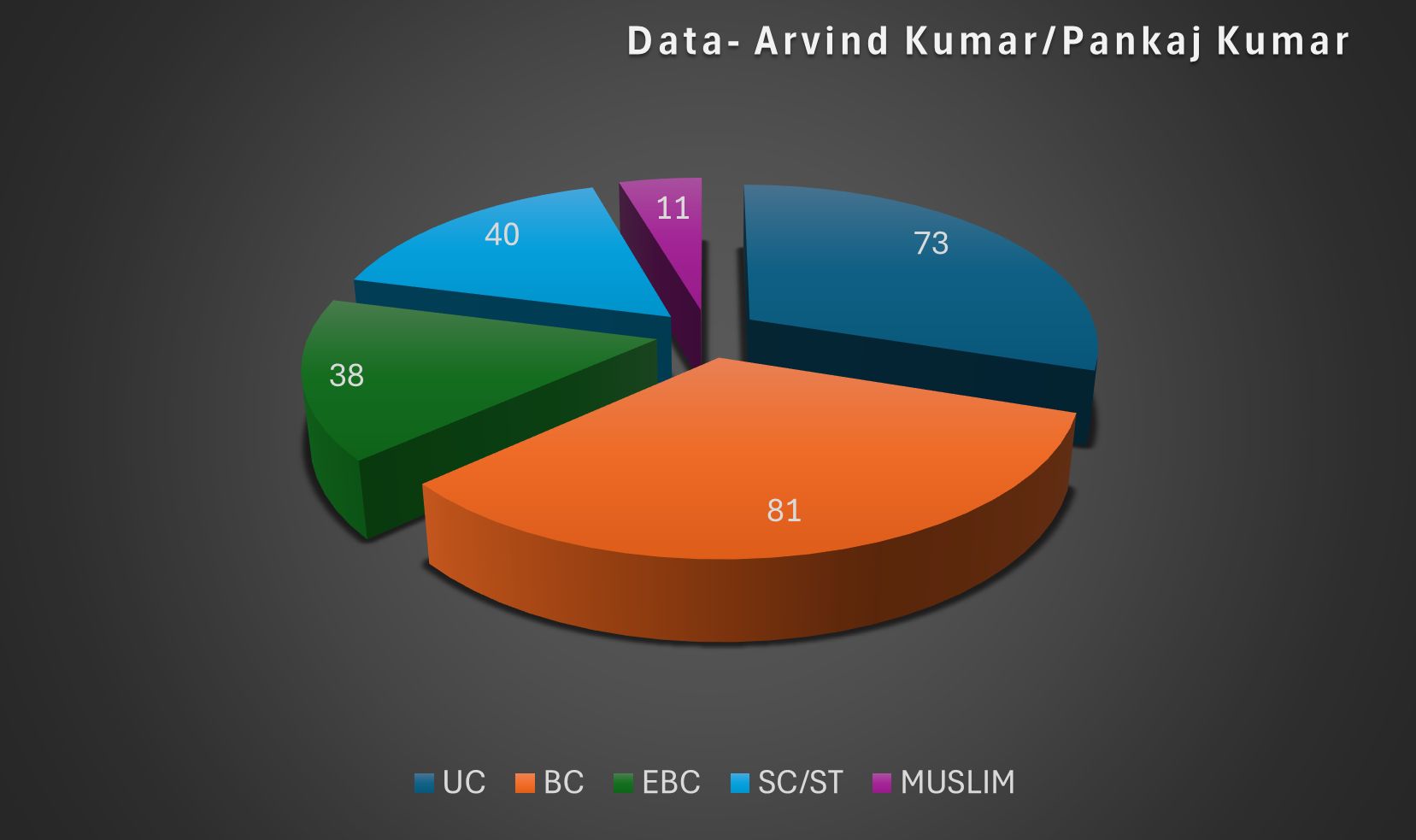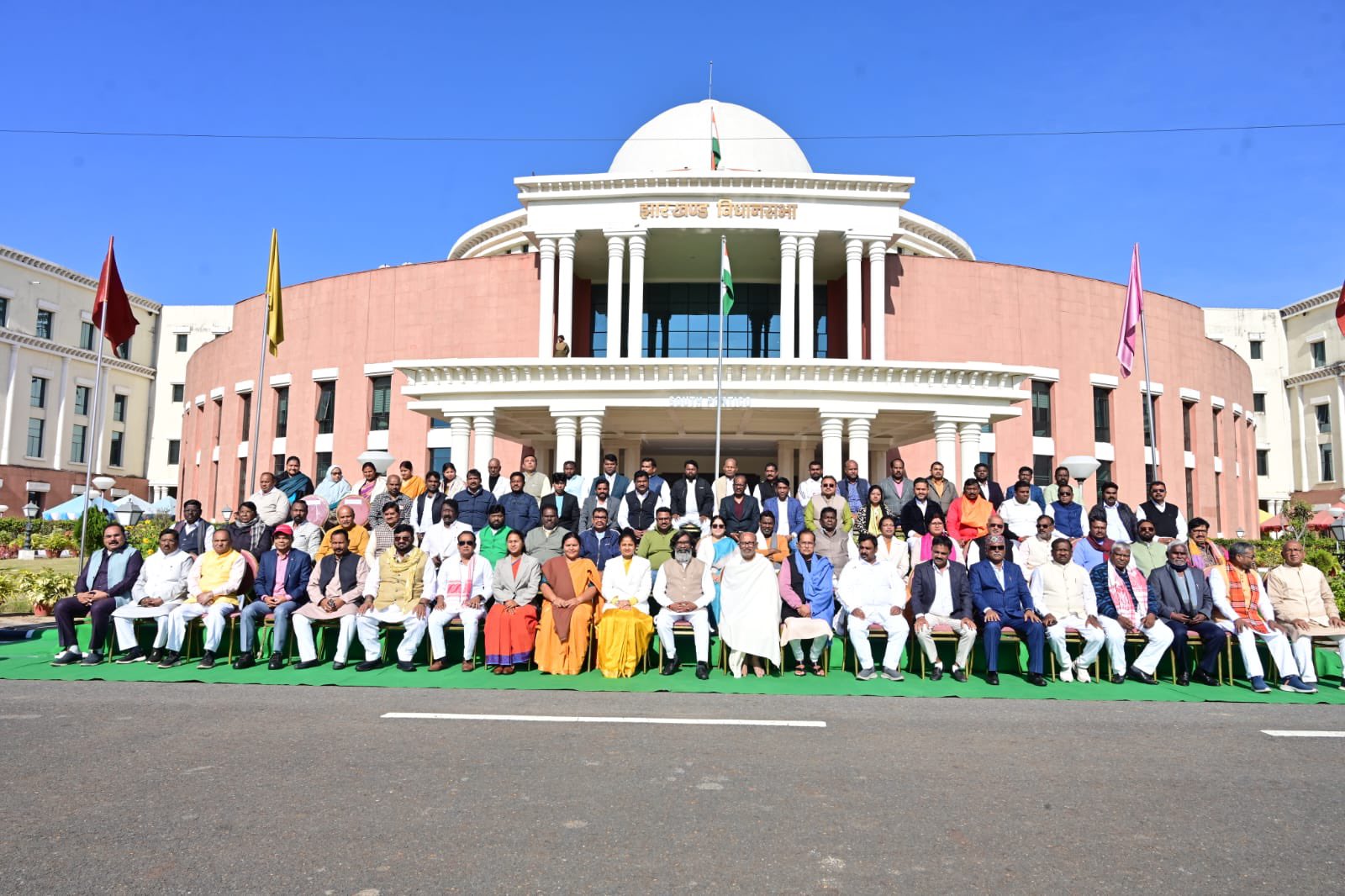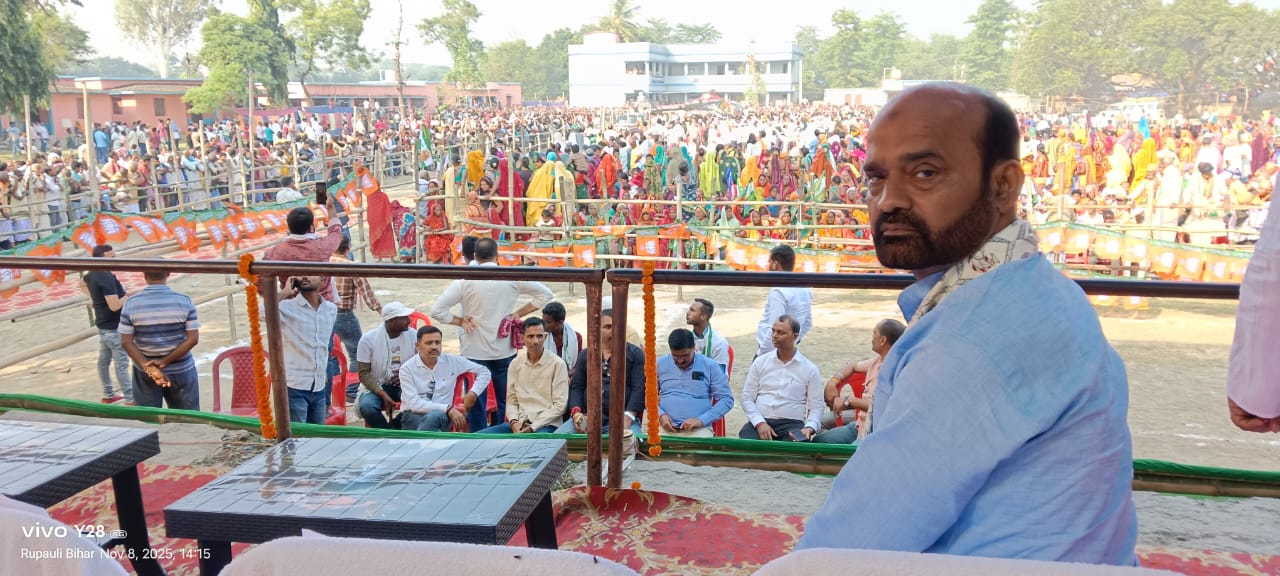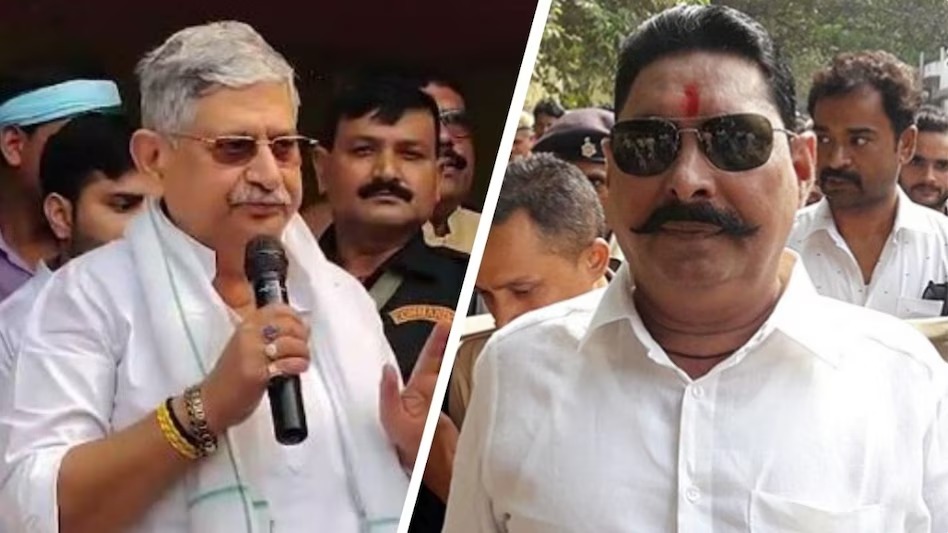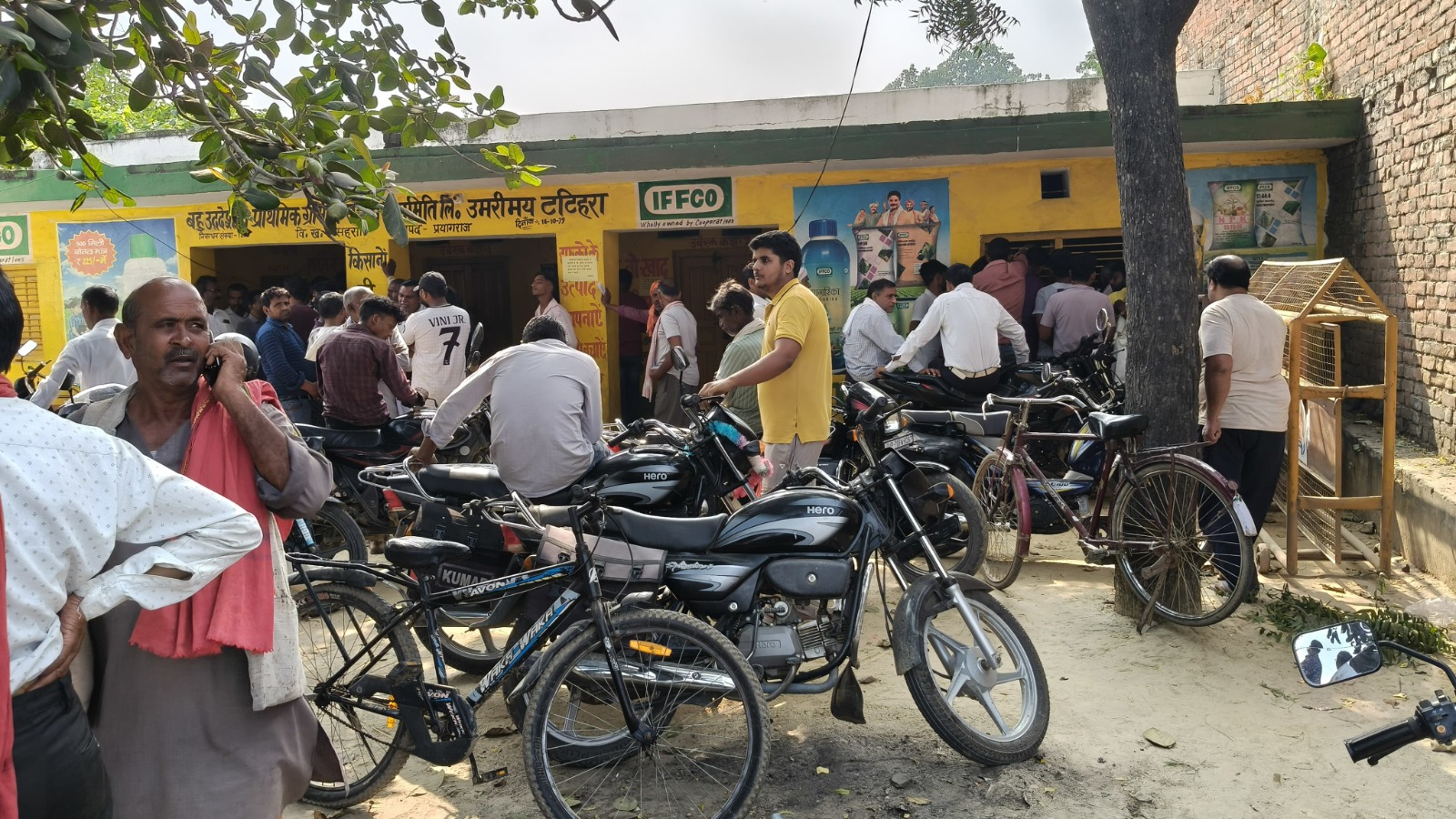Recently, Delhi University Vice-Chancellor Yogesh Singh announced that Manusmriti would not be part of the syllabus of any academic programme of the University. The announcement came in the wake of the university’s Sanskrit department trying to include the text in its syllabus. Prof Laxman Yadav, Bahujan thinker and author of the bestseller ‘Professor Ki Diary’ (A Professor’s Diary), who taught in the university for 14 years, spoke with FORWARD Press on the issue:
The vice-chancellor of Delhi University has announced that Manusmriti will not be part of the syllabus of any academic programme of the university. It is believed that the announcement followed fierce opposition to the move. Should the teaching of Manusmriti be opposed?
To begin with, Manusmriti is a book that was burnt by Babasaheb Ambedkar. That was about a century ago. Please note that Baba Saheb did not burn any other book. He did critique other Hindu scriptures but didn’t burn them. He burnt Manusmriti because it was not even worth critiquing. The Manusmriti advocates depriving Dalits, Shudras and women of many rights. It justifies denial of education to them as well as discrimination against them while dispensing justice. That is why the text is rejected. Attempts were made to include it in the curriculum in Delhi University. One argument is that teaching such texts would lend them legitimacy. We have to reject Manusmriti; we don’t have to study it. There is nothing worth studying in it. This is one way of looking at the issue. Clearly, from this perspective, Manusmriti should not be included in the DU syllabus. The other argument is that if it is not taught in universities, where will it be taught? My view is that if you believe that Manusmriti should be taught in universities then the next chapter after Manusmriti should be Gulamgiri, followed by Annihilation of Caste. If you want to teach Manusmriti thus, please go ahead.
Manusmriti was first sought to be inserted in the history syllabus and next in a course on law. The vice-chancellor says that a year ago he had issued instructions that Manusmriti should not be included in any syllabus. Now, the Sanskrit Department was caught trying to include it. Don’t DU departments follow the orders of the VC?
Of course, all departments should adhere to the instructions of the VC. If once the VC has directed that Manusmriti should not be included in any academic programme, then it should not be. But as your question suggests, this did not happen. Despite clear instructions, a department tried to include the book in the syllabus. This means that rules are being flouted in DU. However, my take on this issue is that people with an RSS [Rashtriya Swayamsevak Sangh] mindset do not accept the Constitution. They want to build Manusmriti’s India. This mindset was exposed when the RSS began opposing the Constitution just three days after its adoption by the Constituent Assembly on 26 November 1949. They said that the Constitution hasn’t adopted anything from the Manusmriti. RSS still doesn’t consider the Constitution as its own. Sometimes, they contest elections with the motive of changing the Constitution. At other times, they make “great men” demand that a new Constitution be enforced. This is the mindset of the VC, too. So, this might have been a trial balloon. Let us see what reaction the introduction of Manusmriti elicits. Will it be opposed? Can we push it through the backdoor?
The Vedas, Upanishads, Puranas as well as other texts like the Ramayana and the Mahabharata also uphold discrimination based on caste, varna and gender. But there are no restrictions vis-à-vis these texts. Even Kautilya’s Arthashastra seems acceptable. Could maintaining this stance on Manusmriti be a stratagem to lend acceptability and legitimacy to these other texts?
You are right. But you see, there are some things which have nothing worth critiquing, nothing worth responding to. Manusmriti is one of them. It combines an inhuman mindset with an exhaustive list of injustices. It lends legitimacy to inhumanity and injustice. It is not just another text. Nowhere do the Ramayana, the Mahabharata or Kautilya’s Arthashastra prescribe how a society should be. If a Shudra sits beside a Brahmin, his buttocks should be severed – neither Mahabharata nor Ramayana or any other scripture says things like this. But Manusmriti does. Manusmriti says women should not have the right to education and they should always be subservient to their fathers, husbands and sons. A Shudra can be sentenced to death for a crime. But if a Brahmin commits the same crime, he can be pardoned. No other scripture makes such prescriptions. So, Manusmriti should be rejected at all costs.

One question that begs an answer is that if our people won’t read Manusmriti, they won’t know what it says. And if they don’t know what it says, how will they oppose it?
As a professor who has taught for 14 years, my answer to this question would be the same as that to your first question. If a university wants to teach Manusmriti or feels that it should be taught, then books that counter it should also be taught. Or is it that you want to teach only Manusmriti? You have already appointed RSS people as VCs of all universities. Most of the professors are also of the same mindset. Shakhas are being held in universities. This shows what direction you want higher education to take. Let me give you an example. This could be taken as a challenge, too. Let the university hold a seminar on the topic that this country will be run as per the Constitution and not the Manusmriti. Not one DU professor will agree to organize a seminar on this topic. Universities are now controlled by the RSS and if the universities want to teach Manusmriti, their objective surely is not making Dalits and the Backward Classes aware.
Tell us something about how DU makes its syllabuses? What is the process, the mechanism? Has it changed in recent years?
The changes have not come about overnight. I have written a book, Professor Ki Diary. I won’t go into the details here but in my book, I talked about issues like what universities are meant for, what is their importance, what should happen there and how. In short, I would like to say that as far as higher education goes, there never was a golden period for the Dalitbahujan. The demography of universities began changing slowly after the Constitution came into force and the reservation system kicked in. With a [reserved seats] roster system in place, the first generation of Dalits and the Backward Classes began entering the portals of universities. The process of democratization commenced. But the handful of people from the dominant classes know very well that if Dalit-OBCs enter universities in large numbers, if they manage to enter the administrative set-up of the varsities, then they would start answering them back and a counter-narrative would start building. That is why they have been consistently conspiring to block the entry of Dalit-OBCs into universities. This has been happening for a long time and it is continuing. Provision for lateral entry, the ploy of not-found-suitable [NFS] candidates and appointing professors on contractual basis – they are using all these methods to serve their own ends. Nowadays, guest professors are being appointed in large numbers. Then, there is exploitation and persecution within institutions – Rohith Vemula is a case in point. There are some kinds of exploitation that are invisible to others but Dalit and OBC professors and students have to put up with exploitation and deprivations on a daily basis. The situation has worsened over the past 10 years. That is because the RSS has realized that controlling centres that impart knowledge can perpetuate its rule. The situation today is that even if the BJP loses the next election, teachers wedded to the RSS ideology will continue teaching students for the next 30 years. There has been a sea change in universities over the past 10 years. I can say with some degree of confidence that there is not a single VC today who doesn’t profess the RSS ideology. Of course, there may be some professors who don’t subscribe to the RSS ideology. All kinds of corruption are happening in universities. It is not that there were no RSS men in universities earlier. But there were socialists, Congressmen and communists, too. They used to discuss things, had debates. But over the past 10 years, universities have become an exclusive preserve of the Sanghis. If you hold views opposite to theirs, they won’t even talk with you. The New Education Policy has ruined the education system in universities. The changes that have come about over the past 10 years are very dangerous.
The dominant sections of society are trying to get Manusmriti included in the syllabuses. Why can’t the Dalitbahujan make an attempt to get the writings of Phule, Periyar and Ambedkar included in the syllabuses? Why can’t they launch such a movement?
Please note – the Uttar Pradesh government has decided to merge schools. Most of the students in these schools are Dalitbahujan. They must be 99 per cent and others one per cent. The Dalitbahujan have been unable to stop closure of their schools, they are not able to stop the fee hikes in their schools, and they are not able to stop the communalization of school syllabuses. Then, how can you expect that they will launch a movement? The poor Dalitbahujan won’t do it. It has to be done by the educated among them. The Dalitbahujan professors can’t organize even a seminar on their worldview in the universities. They just want to protect their jobs. They fear that if they speak up, their promotion may be jeopardized. How can you expect a community that is keeping mum on the most basic issues to think about the deeper issues, to launch a movement on what should be part of the syllabus and what should be removed from it.
My answer is that I am disappointed with my community. I am dejected. When a community is unable to fight on major, very obvious issues, I don’t think it is ready for a battle on deeper issues. Of course, I want that battles should be launched on all issues, at all levels. They should fight against the commercialization of education, against appointment of RSS acolytes as professors, against the domination of the RSS. They should have their say on every issue, including the syllabus of universities.
(Translated from the original Hindi by Amrish Herdenia)
Forward Press also publishes books on Bahujan issues. Forward Press Books sheds light on the widespread problems as well as the finer aspects of Bahujan (Dalit, OBC, Adivasi, Nomadic, Pasmanda) society, culture, literature and politics. Contact us for a list of FP Books’ titles and to order. Mobile: +917827427311, Email: info@forwardmagazine.in)
